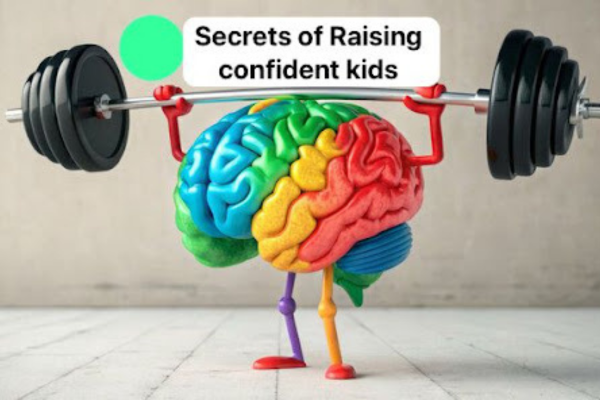
Let Them Struggle: The Secret to Raising Confident Kids
As parents, we love our children so much that we often do too much for them. We rush to fix their problems, cover up their mistakes, and shield them from failure. While our intentions come from love, this approach can lead to overparenting — and it has a hidden cost.
When children are not allowed to make mistakes and face the natural consequences of their actions, they miss out on developing competence, personal agency, and self-esteem. They grow up feeling unsure about their abilities, always looking for someone else to take charge.
Why Problem-Solving Matters
Research shows that self-esteem doesn’t come from praise, it comes from self-efficacy — the belief that “I can handle things.”
If a child believes they can solve problems on their own, even small ones, they feel more in control, more capable, and more resilient.
That’s why teaching kids how to solve their own problems — instead of solving problems for them — is one of the greatest gifts a parent can give.
Affordable Consequences
Imagine your 10-year-old forgets to take their lunch to school. Instead of rushing to school to deliver it, you allow them to go through the day a bit hungry. It’s not life-threatening, but it’s an affordable consequence.
By experiencing the discomfort of forgetting lunch, your child learns to take responsibility, and chances are, they’ll remember it next time. If you rescue them every time, they never learn — and you unknowingly send the message:
“You can’t handle life. Let me do it for you.”
The Four Steps of Love & Logic Parenting
The Love and Logic approach teaches parents how to stay warm and supportive while building independence. Here’s how:
-
Provide Empathy
“Oh no, that must feel really frustrating. I bet you’re hungry.” -
Hand the Problem Back to the Child
“What do you think you’re going to do about it?” -
Offer Supportive Examples (Only if they ask)
“Would you like to hear what other kids have tried in similar situations?”
If yes, suggest a few options:-
“Some kids set a reminder the night before.”
-
“Others pack their lunch right after dinner.”
-
“Some put a sticky note on their school bag.”
-
-
Let the Child Decide
“I can’t wait to hear what you decide to do next time.”
This approach creates healthy anxiety — the kind that motivates action — not paralyzing fear. It builds critical thinking and makes your child feel capable and empowered.
Raising Mentally Healthy Kids
Children don’t need parents who fix every problem. They need coaches, listeners, and guides.
Let them fail early — while the stakes are low. Let them experience struggle — while they still have your emotional support. Let them learn that their decisions matter — and so do the consequences.
This is how we raise kids who are not just happy, but mentally strong.
